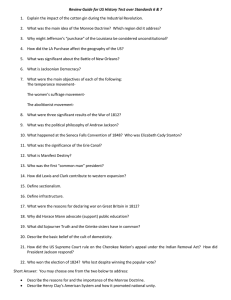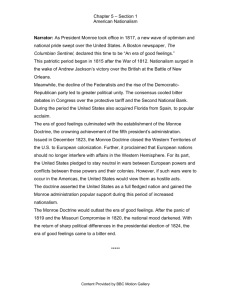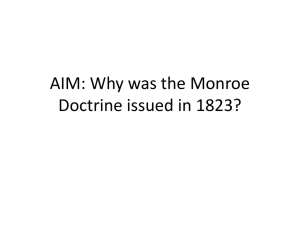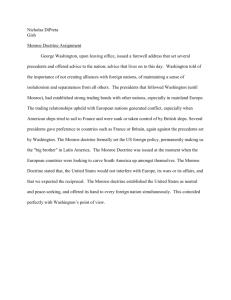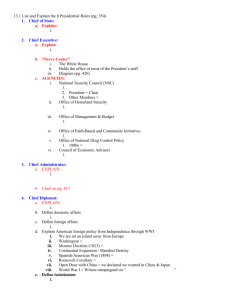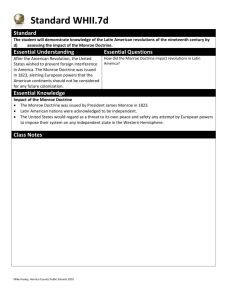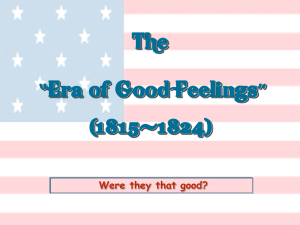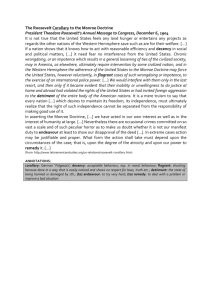Era of Good feelings and the Monroe doctrine
advertisement
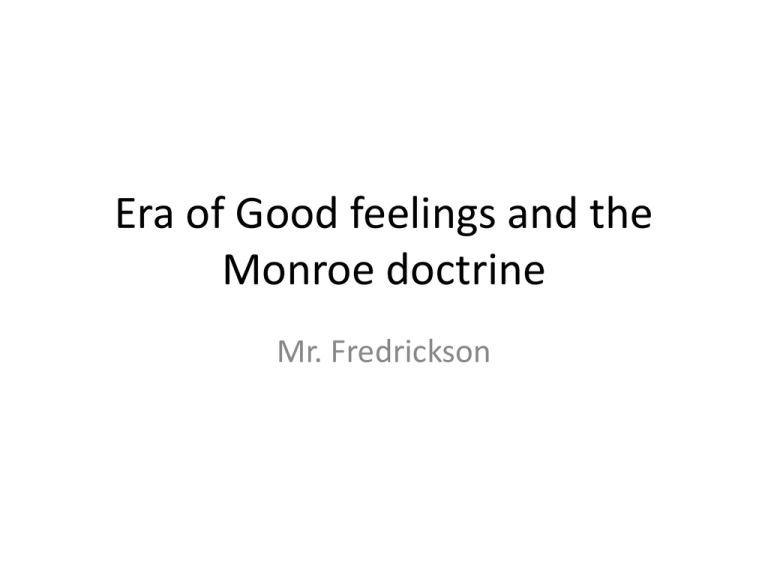
Era of Good feelings and the Monroe doctrine Mr. Fredrickson Era of Good Feelings • After the war of 1812 a wave of nationalism swept the country • James Monroe became president in 1816 • Monroe attempted to create national unity; this time became known as the “Era of Good Feelings” Sectionalism • Loyalty to ones state or section rather than the country • North, South, West Calhoun of the South • • • • Leader: John C. Calhoun War hawk Defended slavery Opposed strengthening the federal government Webster of the North • • • • Leader: Daniel Webster Opposed war of 1812 Opposed slavery Wanted strong national government Clay of the West • Leader: Henry Clay • War hawk (leader) • Supported strong federal government Protective Tariff • English merchants were selling goods for les than the production cost in the hopes of driving American rivals out of business • The protective tariff was a tax on all goods imported from Europe • Protected the countries industries from foreign competition Clay’s American System • Called for tariffs on imported goods benefiting northern factories • With the money from industry northerners would buy farm products from the West and South • Hoping to reduce American dependence on foreign goods American System Continued • Congress was supposed to use money from tariffs to build roads, bridges, and canals • This would make it easier and cheaper for farmers in the south and west to move goods to city markets • Congress spent very little on these internal improvements Adams-Onis Treaty • 1821 • Spain Ceded Florida to the U.S. for $5 million • U.S. gave up claims to land in what is now Texas The Monroe Doctrine • Part of a message to congress in 1832 • President Monroe declares: – U.S. will not interfere with affairs in European Nations or existing colonies of European Nations – European nations were to not attempt to regain control of newly independent nations of Latin America Monroe Doctrine continued • U.S. would oppose any attempts to build new colonies in Americas • Britain supported the doctrine and helped enforce it with their navy • The Monroe Doctrine was American foreign policy until W W I American Uncle – “the bars will stand as long as you are good”
